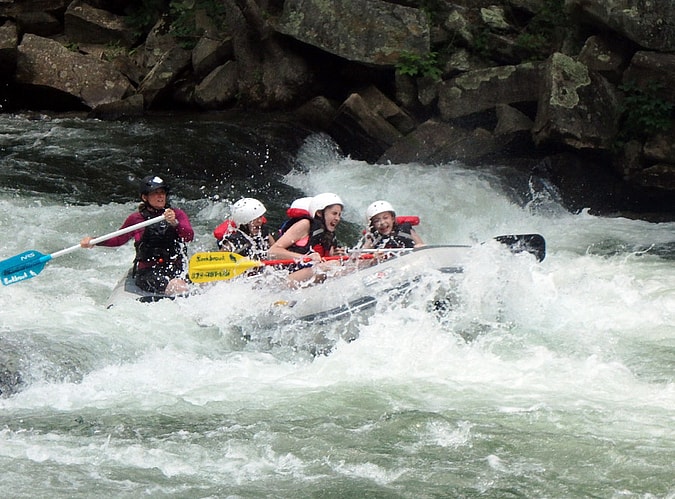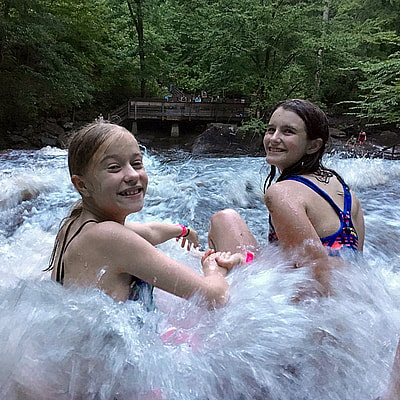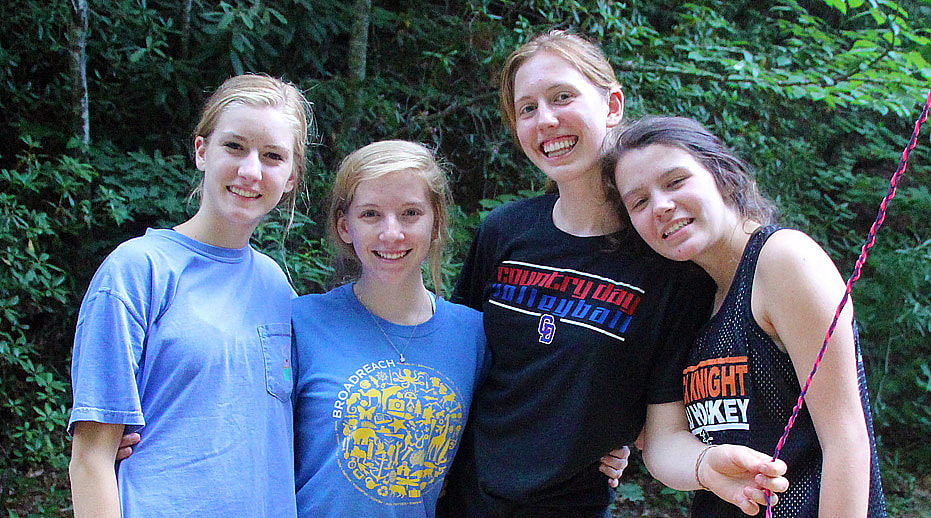It might sound strange, but when you think about it, one of the reasons we send our children to camp —and I’d say this is true for my own girls who attend Rockbrook later during Third Session— is to have them struggle. That’s right; just as much as we hope they’ll have fun, a few bumps in the road is important as well. Scanning through the Rockbrook Web site you won’t see this exactly emphasized, of course. Instead you’ll see girls having the time of their lives, smiling while rock climbing, horseback riding, flying through the air on our zipline course, and working the pedals of an antique floor loom. But we know that attending summer camp is more than just fun, more significant than visiting an amusement park. We know that camp is good for kids in important ways, and we hope the experience of these days away from home will be meaningful and formative long after they return. And, learning to deal positively with difficulty is one clear area of growth.
The word here is “resilience,” that ability to recover from setbacks, to solve everyday problems, to be strong when met with disappointment. We want our kids to be more resilient when they encounter frustration, and when they get upset that something isn’t going exactly right. After all, life as an adult is often colored with those sorts of challenges— traffic jams, bureaucratic obstacles, mean-spirited colleagues at work, etc. As we work to improve things, strive toward goals, there’s bound to be some struggle. So what do you do when things get difficult like that? Get angry, start blaming, crumple into a heap? Or do you reapply yourself, navigate the problem creatively, look for solutions? What do you hope your kids will do when they’re older?
It turns out that camp is a great place for kids to become more resilient. Life here is chock full of opportunities to learn that problems can be solved, obstacles overcome, and setbacks endured. With the encouraging environment combined with so many positive role models at camp, especially at Rockbrook, the inevitable challenges of something different— a new activity, unfamiliar food, unsettling creature like a “spricket” (which, by the way, look like monstrous combinations of spiders and crickets that love to find their way into the cabins… aka, camel crickets) —isn’t as overwhelming. The strong community of camp provides the support. It pulls us all along, bolstering your girls’ confidence at the top of sliding rock, inspiring them to try again when they can’t make a climbing move on the alpine tower or center their clay on the potter’s wheel. There’s a power to the collective experience of camp. When everyone has to walk down the cabin line at night to visit the bathroom, when everyone lives essentially outside with no AC, or when everyone has to help keep the dining hall clean, it’s easier to handle what’s uncomfortable. At camp, we simply don’t stop when we struggle. Supporting each other, we try harder.
You might even think of this as the essence of camp; it’s inherently different from ordinarily life. Away from the comforts of home, living with new people, being immersed in nature, camp requires girls to adapt, to meet those (and other) differences and despite any initial uncertainty, carry on. If we could somehow lessen those differences, add AC and bathrooms to the cabins for example, or serve only familiar foods, something important and valuable would be lost. It would mean lessening the challenges of camp, taking away some of the struggles, and thereby reducing the opportunities to develop a healthy habit of resilience. If we made camp completely comfortable, it would cease to even be camp, and this important opportunity for growth would be diminished if not lost altogether. Plus, I suspect, camp would be less meaningful for the girls. Attending would be reduced to mere amusement, and something easily forgotten.
Yes, we have fun at camp. And yes, we sometimes struggle with the challenging differences we encounter here, but together it’s great.







